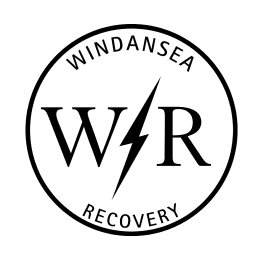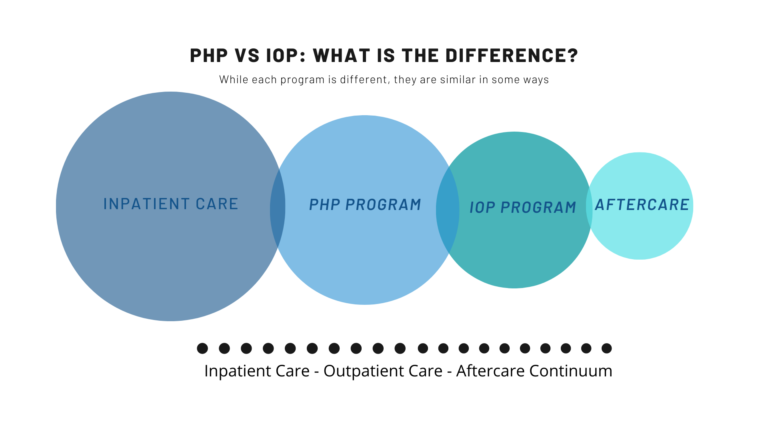Understanding the alcohol withdrawal timeline is crucial for anyone considering sobriety or supporting a loved one through recovery. At Windansea Recovery, we believe knowledge empowers individuals to make informed decisions about their health and well-being. This comprehensive guide walks you through what to expect when someone had developed alcohol addiction then is going through alcohol withdrawal, when to seek professional help, and how our holistic approach at our La Jolla, California facility supports individuals through this challenging but transformative process.
Why Alcohol Withdrawal Occurs
When someone regularly consumes alcohol, their body and brain adapt to its presence. Alcohol is a depressant that enhances the effects of GABA (gamma-aminobutyric acid), a neurotransmitter that produces feelings of calm, while simultaneously suppressing glutamate, an excitatory neurotransmitter. With consistent alcohol use, the brain reduces natural GABA production and increases glutamate receptors to maintain balance.
When alcohol consumption suddenly stops or significantly decreases, this carefully maintained neurochemical balance is disrupted. The brain, now with decreased GABA function and increased glutamate activity, enters an overexcited state that manifests as withdrawal symptoms.
The Alcohol Withdrawal Timeline
While everyone’s experience with alcohol withdrawal is unique, depending on factors such as duration of use, average consumption, overall health, and genetics, most individuals progress through a relatively predictable timeline. Understanding these stages can help prepare for what’s ahead and recognize when medical intervention might be necessary.
Stage 1: Early Withdrawal (6-12 hours after last drink)
What’s happening in the body: As alcohol begins to leave your system, your brain starts responding to the absence of its depressant effects.
Common symptoms:
-
- Anxiety and restlessness
-
- Nausea and abdominal discomfort
-
- Insomnia or sleep disturbances
-
- Loss of appetite
-
- Mild tremors
-
- Headaches
-
- Sweating
-
- Elevated heart rate and blood pressure
For those with mild alcohol dependence, these might be the only withdrawal symptoms experienced. However, for moderate to heavy drinkers, this is just the beginning of the process.
Stage 2: Peak Withdrawal (24-72 hours after last drink)
What’s happening in the body: This is typically when withdrawal symptoms reach their greatest intensity as the brain responds more dramatically to alcohol’s absence.
Common symptoms:
-
- Increased irritability and mood swings
-
- More pronounced tremors
-
- Continued or worsening insomnia
-
- Confusion
-
- Heightened anxiety
-
- Increased sweating and heart rate
Potential severe symptoms requiring immediate medical attention:
-
- Seizures (most common between 24-48 hours)
-
- Hallucinations (visual, auditory, or tactile)
-
- High fever
-
- Extreme disorientation
This stage represents the highest risk period for developing serious complications such as delirium tremens (DTs), especially for those with a history of heavy drinking or previous withdrawal experiences.
Stage 3: Declining Symptoms (72+ hours after last drink)
What’s happening in the body: For many individuals, symptoms begin to improve significantly after the 72-hour mark as the brain starts to adapt to functioning without alcohol.
Common symptoms:
-
- Gradually decreasing physical symptoms
-
- Lingering anxiety and irritability
-
- Improving sleep patterns
-
- Slowly returning appetite
For those experiencing uncomplicated withdrawal, most acute physical symptoms significantly improve within 5-7 days. However, some individuals, particularly long-term heavy drinkers, may experience a prolonged withdrawal syndrome.
Stage 4: Post-Acute Withdrawal Syndrome (PAWS) (Weeks to months after quitting)
What’s happening in the body: While the acute physical symptoms have subsided, the brain continues to heal and rebalance neurotransmitter systems, which can lead to ongoing psychological and cognitive effects.
Common symptoms:
-
- Mood fluctuations and emotional vulnerability
-
- Anxiety or depression
-
- Sleep disturbances
-
- Difficulty with concentration and memory
-
- Reduced energy and persistent fatigue
-
- Decreased stress tolerance
-
- Occasional cravings for alcohol
PAWS symptoms typically come and go in waves, often triggered by stress or reminders of drinking behavior. These symptoms gradually improve over time but may persist for up to a year in some cases.
When Medical Supervision Is Necessary
At Windansea Recovery, we strongly emphasize that alcohol withdrawal can be dangerous and even life-threatening in certain circumstances. Medical supervision is recommended for anyone with:
-
- A history of heavy, long-term drinking (multiple drinks daily for months or years)
-
- Previous episodes of complicated withdrawal, including seizures or DTs
-
- Co-occurring medical conditions, especially heart, liver, or neurological disorders
-
- Advanced age
-
- Nutritional deficiencies
-
- Polydrug use
Medical detoxification provides:
-
- Medication to manage symptoms and reduce complication risks
-
- Constant monitoring of vital signs
-
- Immediate intervention if severe symptoms develop
-
- Nutritional support and hydration
-
- Comfort measures to ease the process
The Windansea Recovery Approach to Alcohol Withdrawal
At our La Jolla facility, we take a comprehensive approach to supporting clients through alcohol withdrawal and the early recovery process. Our methods combine evidence-based medical practices with holistic care that addresses the whole person—mind, body, and spirit.
Medical Support
Our medical team provides thorough assessments to determine appropriate withdrawal management strategies, which may include:
-
- Properly administered medication protocols to minimize discomfort and risk
-
- Regular monitoring of physical health markers
-
- Nutritional guidance and supplementation to support healing
-
- Collaboration with specialists when needed for complex cases
Holistic Support During Withdrawal
What sets Windansea Recovery apart is our integration of holistic practices that complement medical care during withdrawal:
-
- Nutritional Therapy: Properly nourishing the body to repair alcohol-related damage and support brain chemistry rebalancing
-
- Hydration and Electrolyte Maintenance: Ensuring proper fluid balance to support bodily functions
-
- Gentle Movement Practices: Appropriate exercise like coastal walks or gentle yoga to promote natural endorphin release
-
- Stress Management Techniques: Teaching breathing exercises and meditation to help manage anxiety during withdrawal
-
- Comfortable Environment: Our serene coastal setting provides a peaceful backdrop for the recovery journey
Beyond Withdrawal: The Recovery Journey
Successfully navigating the alcohol withdrawal timeline is just the first step in recovery. At Windansea Recovery, we provide comprehensive support for the journey ahead:
-
- Individual therapy to address underlying issues that contributed to alcohol use
-
- Group therapy for communal healing and shared experience
-
- Family therapy to repair relationships and build support systems
-
- Life skills development for managing triggers and challenges in sobriety
-
- Relapse prevention planning with concrete strategies and tools
-
- Continued holistic practices to support overall wellbeing
-
- Connection to community resources for ongoing support
Finding Hope in Recovery
While the alcohol withdrawal timeline can seem daunting, it’s important to remember that it represents a temporary period of adjustment that leads to significant health improvements. The brain and body show remarkable resilience when given proper support and time to heal.
At Windansea Recovery, we’ve witnessed countless individuals successfully navigate withdrawal and discover a new way of living that brings genuine joy, authentic connection, and renewed purpose. Our integrated approach ensures that you never have to face this challenge alone.
If you or someone you love is considering addressing alcohol dependence, we encourage you to call our compassionate team at (619) 815-2555 or Contact Us Here. We’re here to answer your questions about the withdrawal process and how our program can support your unique recovery journey.
Disclaimer: This article is for informational purposes only and is not a substitute for professional medical advice. Alcohol withdrawal can be dangerous and potentially life-threatening. Never attempt to detox from alcohol without proper medical supervision, especially after prolonged or heavy use. If you or someone you know is experiencing severe withdrawal symptoms, call 911 or go to the nearest emergency room immediately.
po



























